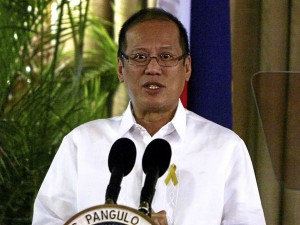
A year into President Aquino’s term, foreign investors are still not keen on putting their money in the Philippines because of unstable laws and policies, among others.
MANILA, Philippines—Foreign investors remain reluctant to put money on the Philippines despite reforms by President Benigno Aquino, locally based western and Asian business leaders said Wednesday.
A year into Aquino’s six-year term, the US, Europe, Australia-New Zealand, Japan and South Korean chambers said investors wanted stronger assurances that laws and policies were stable.
The comments came as the Asian Development Bank (ADB) said the country still suffered from red tape, weak rule of law and unpredictable policies, all of which were holding back foreign investment.
John Forbes, senior investment adviser at the American chamber, suggested some firms were holding back amid concerns that rules will change mid-stream, especially when a new president takes over.
“I don’t see foreign investors coming in fast enough,” Forbes told a press forum.
The central bank said foreign investment inflows to the Philippines in the four months to April fell 15 percent to $552 million and the chambers suggested this was dwarfed by capital flows to many of its neighbors.
Sean Georget, executive director of the Canadian Chamber, said the press shared part of the blame.
“It’s a huge task to change public perspective. Much of the media only focuses on bad news. What gets reported is mostly negative stories,” Georget said.
The foreign business leaders agreed Aquino had started on a positive note with a strong anti-corruption campaign and a scheme to attract private investment to build crumbling infrastructure.
But investment in roads, bridges and airports, as well as mining, takes years to pay off, meaning it is important that policies last after Aquino steps down in five years, they said.
The Manila-based ADB said in a report released Wednesday that the Philippines was being held back by bureaucracy, poor policy and an apparent lack of a rule of law.
It also cited high labor and power costs, poor infrastructure and a high cost of doing business.
Although Aquino plans to use private investment for infrastructure, the ADB report said the Philippines lagged behind in this area as well.
“Everything is available on paper but in reality, is lacking. Processes are not transparent, not competitive, and not robustly prepared,” the report said.
World Bank figures showed that foreign direct investment in the Philippines in 2009 was only $1.95 billion compared with $7.6 billion in Vietnam and $4.98 billion in Thailand.